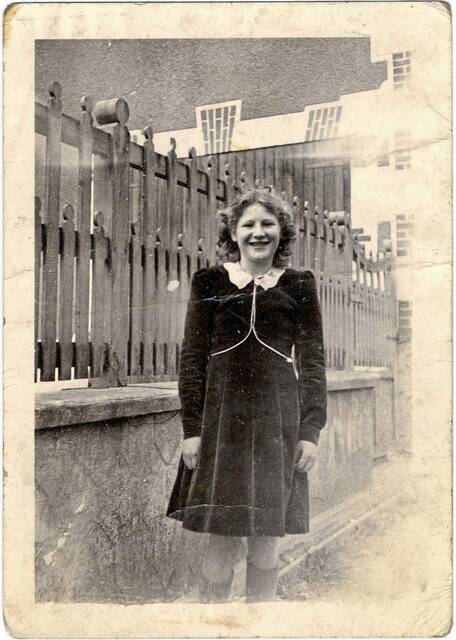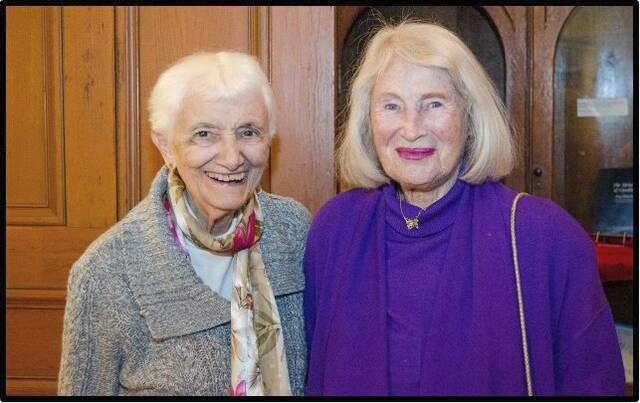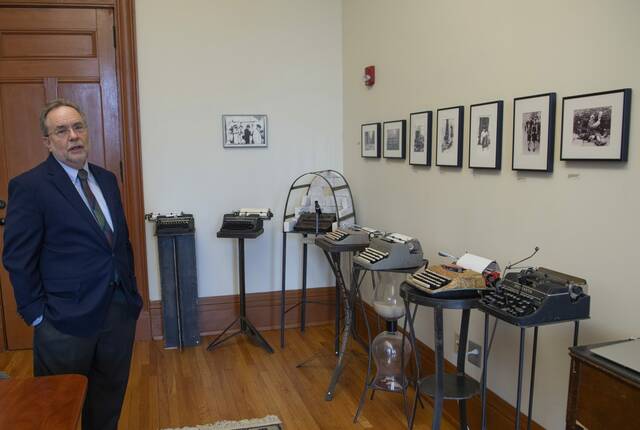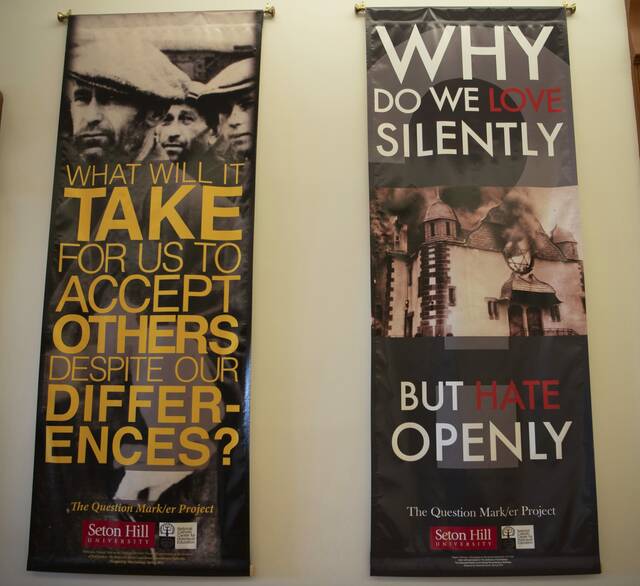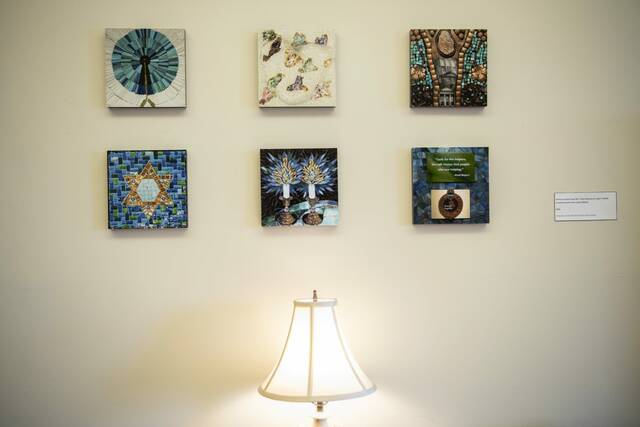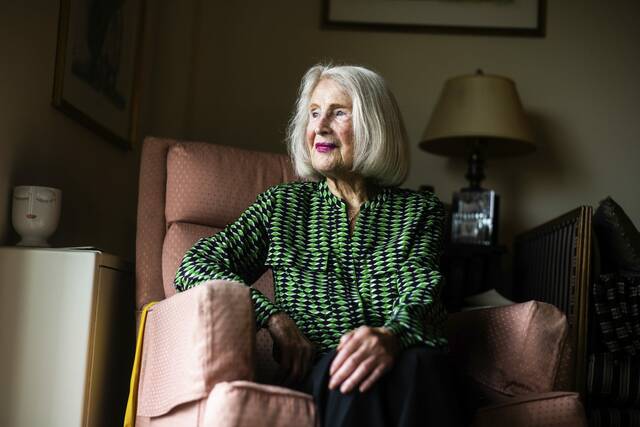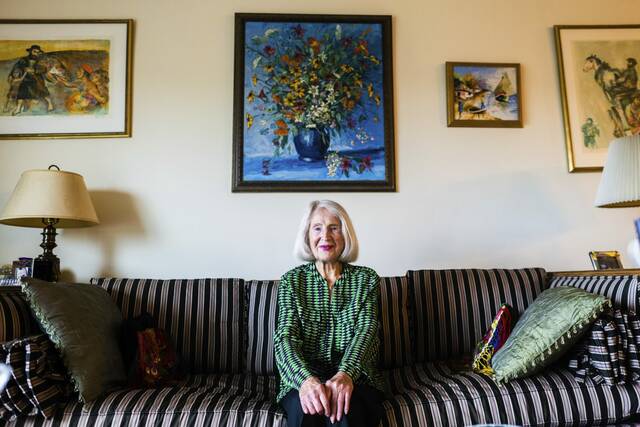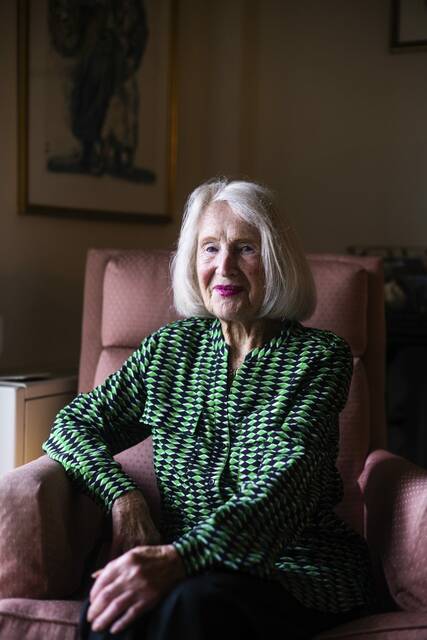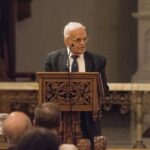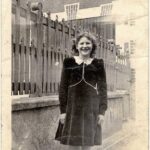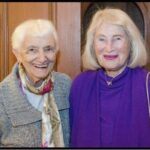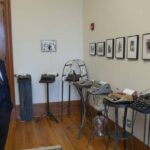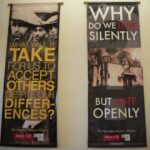Voices from the past that keep alive the horrors of the 20th century Holocaust carry an urgency today.
Those voices are demanding increased attention through programs based in Southwestern Pennsylvania and New York, even as the current tragedies of the Israel-Hamas conflict reverberate around the world and antisemitic incidents continue to increase both locally and across the nation.
The National Catholic Center for Holocaust Education at Greensburg’s Seton Hill University has created and presents online videos of eight Southwestern Pennsylvanians offering firsthand accounts of surviving the Holocaust.
“Now we’re starting a second series with children whose parents were Holocaust survivors who have passed away,” said James Paharik, the center’s director and a sociology professor at Seton Hill.
“Hearing these individual stories makes it come alive for people,” he said. “It brings it down to the human level and helps them to empathize.”
The Jewish Federation of Greater Pittsburgh has tracked 97 local incidents of concern this year. Shawn Brokos, the federation’s director of community security, said most of those incidents are antisemitic.
She cited recent incidents in Squirrel Hill where vandals defaced at least 10 “We Stand With Israel” yard signs with images of bloody handprints.
“We’re probably at triple of what we saw year-to-date in 2023,” Brokos said.
In 2023, the Anti-Defamation League cited 8,873 antisemitic incidents across the United States. That was a drastic increase from the nearly 3,700 the group reported in 2022 and about 2,700 in 2021.
The Jewish Federation in Pittsburgh listed a total of 300 local incidents of concern last year, up from 122 the previous year.
More than a third of the 2023 incidents occurred after Hamas stormed Israel on Oct. 7, killing and injuring thousands of civilians and triggering war in Palestine’s Gaza Strip.
Last summer, during the trial for the man now convicted of killing 11 congregants in a Pittsburgh synagogue, antisemitic flyers and stickers appeared throughout Squirrel Hill.
“Extremists never miss an opportunity to leverage a crisis or get their message out,” Oren Segal, vice president of the Anti-Defamation League’s Center on Extremism, told TribLive in August. “The trial of the synagogue shooter was another in a long line of incidents.”
Seton Hill series
The videos at Seton Hill’s Holocaust education center allow viewers to associate a face and name with one of the families whose loved ones were among the 6 million Jewish people and members of other minorities killed by the Nazis and their collaborators during World War II.
The survivor videos can be viewed by anyone with internet access. They’re also among resources the center provides to teachers from local schools to enhance their lessons about the Holocaust.
In one of the videos, Solange Lebovitz of Pittsburgh recounts her preteen experiences when her Jewish family lived in occupied France. Though her eight immediate family members survived, many other relatives perished, including her 80-year-old grandfather.
Warned that a Nazi arrest was imminent, Lebovitz’s brother and father escaped from their Paris apartment. They slid down a downspout, she said.
“The way things are right now in the United States and everyplace else, and the antisemitism that’s growing and the hatred, I fear very much for the future generation,” she said near the end of the video. She stressed the need to learn “the history of all the people in order to see what happened with the prejudices.”
Seton Hill also has welcomed Holocaust survivors to speak in person to students and others. Walter Jacob, rabbi emeritus at Pittsburgh’s Rodef Shalom congregation, has appeared at the university to share his experiences during Kristallnacht — organized attacks on Nov. 9-10, 1938, when Jewish-owned stores and synagogues in Germany were destroyed by civilians and paramilitary forces in a precursor to the Holocaust.
Jacob, who was 8 at the time, saw his father arrested with other Jewish men and held for more than a month before being forced to sell his business in Augsburg.
“It is not a day of celebration,” Jacob told the Seton Hill audience about the annual anniversary of Kristallnacht. “It is a day of warning and caution, but we were alive, and that is what we celebrate.”
In a similar move, the New York-based Conference on Jewish Material Claims Against Germany has launched a Survivor Speakers Bureau. The international initiative will allow more than 250 Holocaust survivors to share their stories with students in person in the United States and Germany and virtually in other countries.
Pittsburgh site
Headquartered on the Chatham University campus, the Holocaust Center of Pittsburgh was founded in 1980 by Holocaust survivors and their children.
“We’ve always had a strong focus on remembering the stories of local survivors in particular,” said Christina Sahovey, the center’s operations manager.
Among those efforts is the center’s Generations Speakers Bureau, a group of Holocaust survivors and their offspring who address audiences mostly in person, but sometimes virtually.
“Since July 1, 2023, our Generations speakers have spoken to 3,785 K-12 students in the area and almost 1,200 adults,” Sahovey said.
April, which is Genocide Awareness Month, is the group’s busiest month, with a talk scheduled most days. Sahovey noted it also is the month when many schools touch on the Holocaust as part of their history curriculum.
For the speakers, she said, “It’s a calling and something about which they’re truly passionate. They’re preserving the memory of how their family survived and educating the next generation.”
She added: “We have one speaker who holds up the clothing her father wore when he came to the United States. This piece of history she’s holding in her hands really resonates with audiences on a deep level.
“When people hear a Generations speaker, they’re always left with a deeper understanding of this history and its relevance today.”
“We’re very concerned about the antisemitism that’s on the rise,” Paharik said. “The more we understand about the past, the more we can be informed about what’s happening today and recognize the dangers of extremism in society.”



